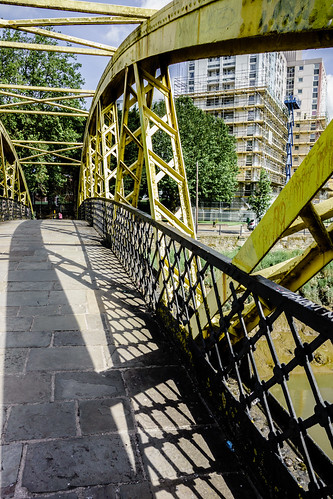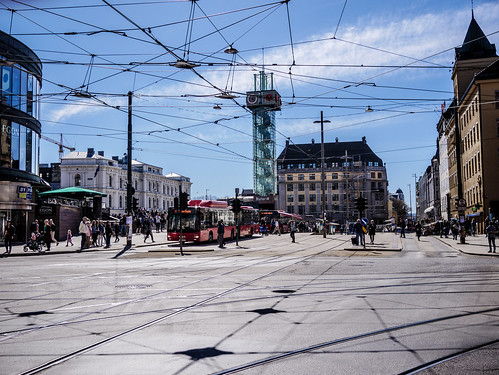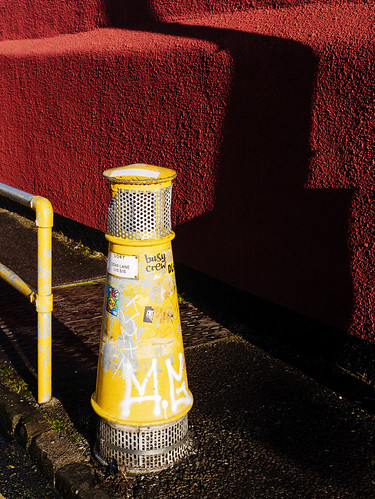Posts by author:
Chris Bertram
In the early days of Crooked Timber, I think we took ourselves to be under some kind of obligation to react to major current events. That’s rather fallen by the wayside. During the era of Trump and Brexit, I find the thought of having to write about every absurdity and injustice just too damn depressing. But today is one of those moments in British politics that perhaps ought to be marked, since we have had the resignations of David Davis and his deputy Steve Baker at 11.59 last night (DExEU’s Midnight Runners as social media has it) followed by the opportunistic self-release of Boris Johnson into the community today. What has brought this about is a ticking clock. The fact that under the Article 50 process, the UK crashes out of the European Union in March next year. The Tory party have wasted most of the two year process, running a pointless general election then arguing with one another, but failing to negotiate with the EU’s team because they couldn’t agree a common position. Faced with the warnings from industry, the prospect of queues at the ports, empty supermarket shelves, supply chains severed and planes unable to land, those Tories who still have connections outside of the Brexit fantasy have prevailed on Theresa May to put together something that might be at least the start of a solution (even if it looks unacceptable to the EU in its current state). But since May’s Chequers compromise envisages at least having the minimum conditions in place for continued trade with a much bigger partner, that inevitably involves accepting that the UK will have to swallow the EU’s way of doing things. The UK has walked away from a table where it had a powerful voice and put itself in a position where those left around the table get to dictate terms. All too much to bear for the true believers in Brexit and for those who think their future careers depend on ingratiating themselves with the true believers. Cliff edge ahead.
My book, [*Do States Have the Right to Exclude Immigrants?*](https://www.wiley.com/en-us/Do+States+Have+the+Right+to+Exclude+Immigrants%3F-p-9781509521951) has now been published on the continent of North America, so the inhabitants of said continent are invited to buy it. (Amazon doesn’t seem to have stock yet.) By way of advance publicity for the book, and because it was a fun idea anyway, I recorded a podcast with my friend Avery Kolers of the Department of Philosophy at Louisville KY for his show on Forward Radio. You [can listen to the podcast now on Soundcloud](https://soundcloud.com/wfmp-forward-radio/ethics-forward-a-secure-border).
Well, my World Cup thread was a bit of a damp squib wasn’t it? And all because, as an afterthought, I linked to a piece in the Financial Times which, it turned out, was only easily accessible to subscribers (like me). People take exception to links to pieces behind paywalls. That’s understandable. People are used to the free internet and I’m personally willing to offer anyone who was offended by the link a full refund on their Crooked Timber subscription. But seriously, folks. We have the problem of fake or seriously distorted news right here. Either users are willing to pay for content from major news agencies, newspapers, etc or they are not. If they are not, and if advertising fails because too many people use adblockers, then they won’t be able to afford to meet the costs that their operation involves: overheads, staff salaries, travel, IT costs etc. So then one of two things happens: (a) they go bust or (b) somebody with a lot of spare cash and an interest in influencing opinion pays the bill. That would be members of the 0.1 per cent, or oligarchs, or maybe states. So if we want the quality and variety of information on which functioning democracies rely, rather than the news somebody very rich with a vested interest wants us to read, we’re going to have to find ways to get users and citizens to pay for information. Simple as.
The knock-out phase is upon us, and this World Cup seems more open then any I can remember. Of the remaining teams only Denmark, Sweden, Switzerland and Japan seem utterly hopeless, which leaves us with 12 contenders, of whom Belgium, Brazil, France and Spain look the most likely. If James is fit, then maybe Colombia has a chance, and who would write off Uruguay? The [FT has some useful stats](https://www.ft.com/content/e0883dfa-7abd-11e8-8e67-1e1a0846c475) ….
For as long as I can remember, the philosopher’s stock example of a proposition that is morally uncontroversial has been “torturing babies is wrong”. Yet it turns out that torturing babies, or at least toddlers, is US government policy, where that policy involves separating them from their parents, leaving them in acute distress and certainly consigning many of them to a lifetime of mental health problems. And all so that Donald Trump can play at symbolic politics with his base. The justification given to the policy by people like Attorney General Jeff Sessions seems to be that the government is simply enforcing the law.
This discourse, that the law has to be enforced and that unauthorized immigrants are lawbreakers who must be punished, is pretty questionable in itself. But in this case it flies in the face of the US government’s commitments under the Refugee Convention, incorporated into US domestic law, according to which refugees are not liable to criminal sanction for unlawful entry. There’s also the Convention on the Rights of the Child, which the US has signed up to but not ratified. So, even if you think that laws must be followed and enforced, the question of who the lawbreakers are here is one that does not admit of a clear answer. Not that one should have confidence that the Supreme Court of the United States would interpret the United States’ legal obligation under the Convention in a way that that does not reflect partisan political judgement. Government of laws not of men? Not really.
As a European it is tempting simply to point the finger at Trump, but our own well is just as poisoned. Hungary now intends to criminalize those who give assistance to migrants and refugees, including merely informing them of their legal rights. Salvini, the new Italian interior minister, having refused to allow migrants to dock at Italian ports, now contemplates a purge of people of Roma ethnicity from Italian territory and regrets that he cannot deport the ones who have Italian nationality. And then there are Europe’s 34,361 dead migrants. Terrible times, and all the more terrible because electorates, or at best substantial minorities of them, are willing this stuff. We who disagree have to say: not in our name. And we have to do what we can to push back.
I was invited to participate in a panel at Oxford’s Refugee Studies Centre last week on the theme “Democratic legitimacy and the ethics of asylum” alongside David Miller and Mollie Gerver, with Matthew Gibney in the chair. My remarks went something like this:
Our title today is “democratic legitimacy and the ethics of asylum”. There are many things this could mean, but I think that the person who formulated this title probably had it in mind to draw our attention to a supposed conflict between two principles or ideals. The first is our duty as citizens and as the states that we constitute to live up to our responsibilities to refugees (perhaps as understood in relation to the 1951 Convention to which the UK is a party and in subsequent jurisprudence, including its 1967 extension). The second is a requirement that the governments of democratic states be responsive to what their citizens want and should not pursue policies, including in the general area of immigration, that go against those citizens’ wishes. It then looks as if there is a tension or even a contradiction, because the UK’s declared international commitments point to an openness towards those fleeing their countries out of fear of persecution, whereas the general public, often fed a diet of stories alleging that asylum seekers are really economic migrants in disguise, want a generally restricive immigration policy backed up by fairly robust enforcement measures.
But there is much that we can usefully challenge in that brief account of the issue, both in the areas of fact and of principle. Let me deal with some issues of fact first. At least in the case of the UK, the reality is that an extremely hostile and restrictive policy towards refugees corresponds with and is responsive to the putative attitudes of the general public. Despite the propensity of both ministers and the Home Office robotically to utter the stock formula, “The UK has a proud history of providing protection …”, the UK actually hardly takes in any refugees. According to Refugee Action, in mid-2015 there were, 117,234 refugees and 37,829 pending asylum seekers (0.24 per cent of the population). To get a sense of those numbers, if Bristol City’s Ashton Gate stadium (capacity 16,600) were full, that proportion is equivalent to a grand total of 40 spectators. As we know, the UK takes active measures to prevent people likely to claim asylum from arriving on its territory, using methods including visa restrictions and carrier sanctions. The few who slip through the net are made to live in substandard housing, forced to exist on £35 a week, are sometimes detained, are often subjected to harsh reporting regimes that require them to travel long distances, are routinely disbelieved by Home Office staff who often assess their claims incompetently and unfairly (as we know from the high rates of successful appeals), are excluded from the labour market and sometimes from other activities such as study. Failed asylum seekers who cannot return home are forced into destitution; those whose refugee status is recognized often become destitute because of the obstacles in the way of them getting bank accounts, housing etc. I could go on, but there is no need. So it turns out that there is no gap between democratic legitimacy, so narrowly conceived, and the UK goverment’s own miserable conception of its ethical duties to refugees, a conception that it claims to be in line with its international commitments.
[click to continue…]
I know you’ve all been waiting expectantly …. My book [*Do States Have the Right to Exclude Immigrants?*](https://www.wiley.com/en-gb/Do+States+Have+the+Right+to+Exclude+Immigrants%3F-p-9781509521951) is published in the UK today by Polity Press (those of you in North America will have to wait until Wiley publish it in July). The book challenges the assumption that lies behind most debates on immigration, namely that states have a discretion to do pretty much as they like and may set their policy according to the interests of their own citizens.
The book has three chapters. In the first, I look at migration today and in history, say something about patterns of migration, why people move and how recent many of the restrictions on movement that we take for granted are. In the second chapter I look at the question of state exclusion from an ideal perspective and ask whether the currently accepted norm of unilateral state discretion over immigration is defensible. You’ll be unsurprised to learn that I think it isn’t. Rather a global migration regime has to be justifiable (in some sense) to everyone subject to it. This doesn’t mean that states never get the right to exclude, but it means that the reasons they use have to be justifiable from an impartial perspective. I also reply to some arguments defending the right of states to exclude. In the final chapter I address the worry that this ideal theorizing is all very well, but we don’t live in an ideal world. I defend the idea that states can have some provisional rights to exclude in a world where other states are not acting justly but that to exercise them they must actively work towards the creation of a fair global migration order and must not undermine existing elements like the 1951 Refugee Convention. Where states fail to work towards justice they lose their authority over would-be migrants who have, in turn, no obligation to obey their immigration laws. That’s a very brief summary of 135 pages. It is a short book, and it argues for a particular perspective. It can’t and doesn’t cover all the bases in the space available, but I hope it is engaging and readable for those without a prior background in the subject matter.







